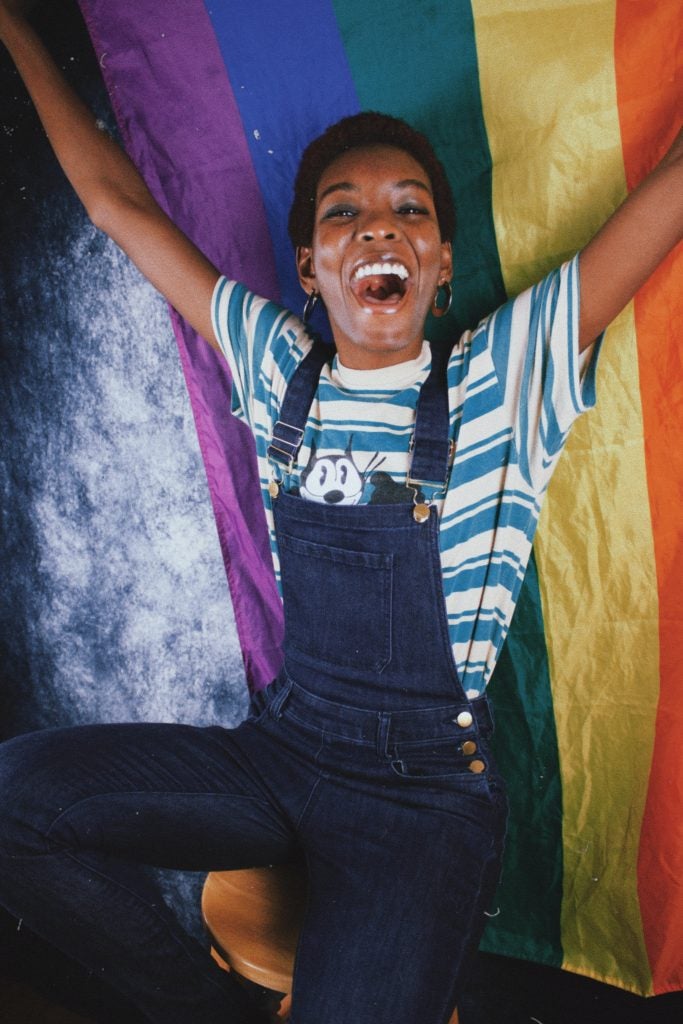
“Coming out” or “coming out of the closet” is a significant aspect of lesbian, gay, bisexual, transgender and queer/questioning (LGBTQ+) life that refers to a non-heterosexual person accepting their sexuality and beginning to tell others about it. Coming out is not a one-time, all-revealing event, but rather an ongoing process involving self discovery, acceptance, and integration.2 The experience of coming out can vary greatly from person to person. Some individuals find coming out relatively easy while others struggle to find acceptance from themselves and/or their loved ones. Sometimes LGBTQ+individuals have been “outed”, or their sexuality has been publicly shared, by other people. Only the person who is coming out has the right to decide the time, place, person, reason, and method of coming out.3 While the following advice for LGBTQ people may not ensure a completely positive and successful coming out experience, it will hopefully serve as a useful reference guide for those who want to avoid unnecessary difficulties along their journey.
Stages of Coming Out and Self-Acceptance
The process of coming out can be put into three stages, which are discovering your LGBTQ sexuality, accepting and/or admitting it, and then integrating it into your lifestyle, such as getting into LGBTQ relationships.2 After discovering your sexuality, it is important for you to accept it in order to integrate it within your lifestyle. Accepting your sexuality makes it easier for other people to accept you as well. Heteronormativity, or society’s constant reinforcement of heterosexuality as the accepted norm, can make it difficult to develop a positive outlook towards your non-heterosexuality. Know that heterosexuality has been accepted as the normal lifestyle only because the dominant forces who have traditionally held power over society enforced this idea.1 As long as no one is getting hurt by your sexual choices and behavior, there is nothing wrong with it.
Some people embrace their queer identity early in life and decide to come out in their early years—others find it difficult to accept their sexuality and do not come out until much later in life. No one should feel pressured to come out; only you can decide if and when you are ready.
Considering Your Options
It may be beneficial to weigh the positive and negative reasons for coming out before you decide what to do. Ultimately, it is up to each individual to determine whether or not they should come out.
Reasons to Come Out

A lot of people who come out believe that the positives associated with coming out are outweighed by the negatives, even when coming out is very difficult. Hiding one’s sexuality can take a significant emotional toll on a person; when they do eventually share their sexuality, people often feel relieved, happy, and empowered. Coming out allows an individual to express themselves completely, live the open life that they want, and avoid the constant fear of someone finding out about their secret sexuality. Another benefit to coming out is that when people are aware of your sexuality, you do not have to hide your romantic relationships and being open with your sexual preferences may even help you find new relationships. In addition, coming out can also help you find more LGBTQ people, which gives you the ability to surround yourself with friends and partners that you have more in common with.3 Not only can you create new relationships by coming out, but it also strengthens existing relationships with the people you come out to. Regardless of their opinion of your sexuality, they will probably feel special that you trusted them with such private and personal information. It is important to consider how others will react, but coming out should be a decision that is fundamentally based on how it will contribute to you and your well-being.
Reasons Not to Come Out
Although we encourage the idea of you being able to express yourself completely, there may be certain situations where it could be better to wait or not out yourself. For example, if you are under the care of the person who you are coming out to and they might not be accepting of your sexuality, it may not be the best time to come out to them. Remember that your safety and security is top-priority, and having food, shelter, and financial support are key to your survival. If coming out could jeopardize these necessities for you, it may be better to wait to come out until you are financially independent and able to support yourself.3 Before coming out to anyone, think about that person’s religious beliefs, culture, and moral values. Although you should not assume whether or not that person will be accepting of your sexuality based on that criteria alone, if you know their personal background or values, it can assist in helping you gauge how accepting they might be. In the case that they may not embrace your sexuality, consider the potential negative consequences of coming out. Will this person tell other people that you do not want knowing? Will they be angry or potentially hurt you physically? Will they not want to be your family or friend anymore?
A person should like or love you for who you are, including your sexuality. If you feel that your sexuality is an important part of you, it is crucial for those who care about you to accept it. However, as stated earlier, your safety and happiness are most important, so do what you can to make yourself happy while still ensuring your well-being.
Please also remember that you are not required to come out to anyone. Your sexuality is personal information and you have the right to decide who knows it. There is nothing wrong with choosing to remain in the closet.
Planning and Being Prepared to Come Out

If you do decide to come out, avoid doing so prior to a potentially stressful event, such as the night before a big test or interview, before driving, or during a family holiday. Avoid alcohol or any other mind-altering substances before coming out. Although alcohol may lower inhibitions and give you more courage, it might also significantly stunt your ability to fully express yourself in a manner that is comprehensible.
Choose a time where you and the person involved are relaxed and attentive—people tend to be irritable and less receptive when preoccupied.4Finding a quiet place that is free of distractions and other people is essential to any effective communication.
Additionally, try to tell each person you wish to come out to individually rather than in a group setting. In group settings, intimacy can be lost while trying to keep everyone focused on the conversation. Furthermore, people in group settings may not want to share their true emotions because of fear of disagreeing with other dominant viewpoints.
If you are worried that your guardians may not accept your sexuality, telling your close friends or siblings might reward you with valuable experience on how to come out to your guardians later.4This may give you a better understanding of which situations and environments are best suited for your future conversations. Moreover, confiding in close friends or siblings may provide you with a support group that can help you through negative circumstances. It is important to note that even if your family is not accepting of your sexuality at first, they will always love you and ultimately want you to be happy.
When coming out to friends and family, be assertive and communicate about your privacy. If you do not want anyone else to know about your sexuality, tell them that. It is your sexuality—you have the right to choose who you share it with; no one else has the right to decide this.
Before coming out, imagine how the person who you are telling may react. A common reaction is not anger or frustration but rather confusion or discomfort.4 Some people do not understand non-heterosexuality and need some guidance. Bias and prejudice from mainstream media outlets have led people to develop many misconceptions about the LGBTQ community. Many people are shocked and confused when a loved one comes out because they feel they no longer know the person as closely as they believed. Others feel betrayed or misguided because they were not informed sooner. Regardless of how rational these reactions may be, you should not feel offended, and it is best to address these issues honestly and reassuringly. However, there is a fine line between curiosity and offensiveness. If you feel a question has gone too far or has negative connotations, do not feel compelled to answer it. Answer only the questions that you feel comfortable with.
While there are no magic words that will address every issue or concern that may arise, the way that you conduct yourself can be just as important as what you say. Avoid being defensive or aggressive; instead, try to be positive and respectful, even if you are faced with uncertainty or hostility.4 Remember that coming out is not only an intensely emotional and life-changing experience for yourself, but it also has a profound effect on the people you come out to as well. Even if things do not go well at first, do not lose courage or strength. In most cases, it is better to be true to yourself than to hide who you really are.
Coming Out as “Queer” When You’re Not Gay or Lesbian

The term “queer” has historically meant many things. Originally it referred to something that is “strange” or “different.” Then, it became a derogatory slur towards non-heterosexual people. Now, the word queer has been embraced by the LGBTQ community and is used as an inclusive, all-encompassing “umbrella” term to describe any type of non-heterosexual sexuality.1 This term acknowledges the fact that many people may be unsure of their sexualities and/or gender identities. It can be more difficult for people who are not strictly gay or lesbian to come out because they may not even know how to describe what their sexuality is. In this case, a good option may be to wait until you better understand your own sexuality, so you can better explain it to others. However, labels are only important because society has made them that way and you do not have to define your sexuality within them.1
Coming out as transgender or non-binary can be challenging because many people find it even more difficult to understand, since it is not just a topic of sexuality but gender as well. Embracing a transgender lifestyle also requires a lot of change in both appearance (hormones, surgeries, etc.) and the way one carries themselves, which can be a big adjustment for the people who surround them. Although your gender and sexuality should not make a difference, know that people may have a hard time understanding them. This does not necessarily mean they do not accept you. Please try to be patient and answer respectful questions to the best of your ability, in the hope that over time, they will grow to understand and accept your queer sexuality.
Coming Out in a Conservative Culture
It can be very difficult to come out when you are part of a religion, race, or country that traditionally believes any non-heterosexuality is wrong. If possible, try to seek out people or groups who will support you. There are many denominations in Christianity and Judaism who accept non-heterosexuality.6The website gaychurch.org allows you to find churches that will accept LGBTQ people based on your location.5 To search for a church near you, click here. No matter what religion you believe in, remember that who created you made you the way that you are for a reason, and they want you to be happy and healthy. Do not engage in any ideologies or treatments that are designed to hurt you, change who you are, or make you feel bad about yourself.
If you are part of an ethnicity or country that traditionally views LGBTQ people as immoral, know that cultures change constantly over time. Across all cultures, things once deemed unacceptable have become more acceptable everyday. Even if your religion and/or culture generally believes that non-heterosexuality is wrong, every person within that group is different and is going to have their own personal beliefs. Therefore, you can find support anywhere—even in places where you may not initially expect it. As stated above, please always put your safety and well-being first, and consider the potential benefits and consequences with coming out in your own specific cultural context.
Love Yourself No Matter What
Coming out may seem daunting at first, but many individuals feel both relieved and empowered once they have gone through the process. It is one of the bravest things anyone can do, so you should be proud of yourself. No matter what the reaction of others may be, never be ashamed or apologetic for being who you are and telling the truth about yourself.4 As long as you are happy and not hurting yourself or others, there is no reason to change. Always love yourself and surround yourself with people who support you.
Concluding Remarks and Additional Resources
Although there is an increasing amount of people that support non-heterosexualities, not all friends and family members may accept your process of coming out. Fortunately, there are quite a few excellent support organizations specifically made to help support LGBTQ individuals. Additionally, many colleges and schools have clubs and other organizations to educate and support the LGBTQ community. Other online establishments, such as the Trevor Project, help with LGBTQ support and specialize in anti-bullying and suicide prevention.8 To visit the website for the Trevor Project, click here. Furthermore, there are some resources that may help provide information to guardians and friends alike. PFLAG is the largest ally organization in the United States. Made up of parents, families, friends, and heterosexual allies united with people who are LGBTQ, PFLAG is committed to advancing equality and societal acceptance of LGBTQ people through its threefold mission of support, education, and advocacy.9 To visit the website for PFLAG, click here.
There are resources for LGBTQ people all over the world. One resource is the Human Rights Watch, who have a web page that lists international LGBTQ websites.7 You can also select the continent you are from and find resources listed more specifically by country. To visit this web page, click here.
We encourage you to reach out to these resources and explore the LGBTQ community in your area. Never underestimate the power of support from others when going through difficult times!
References
- Barker, Meg-John, and Julia Scheele. Queer: A Graphic History. London: Icon, 2016. Print.
- “Coming Out.” LGBT.ie. Web. 21 Feb. 2019.
- “Resource Guide to Coming Out.” Human Rights Campaign. Web. 21 Feb. 2019.
- “How to Come Out As Gay or Lesbian.” WikiHow. Ed. Tom Viren. N.p., n.d. Web. 23 Apr. 2014.
- “Find an Affirming Church.” gaychurch.org. N.p., 17 Feb. 2019. Web.
- “LGBT-affirming religious groups.” Wikipedia. N.p., 12 Feb. 2019. Web.
- “LGBT International Resources.” Human Rights Watch. N.p., 25 Aug. 2010. Web.
- Land, Abbe. “Mental Health Matters.” The Trevor Project. Web. 23 Apr. 2014.
- “About PFLAG.” PFLAG. Web. 21 Feb. 2019.
Last Updated: 5 March 2019.
